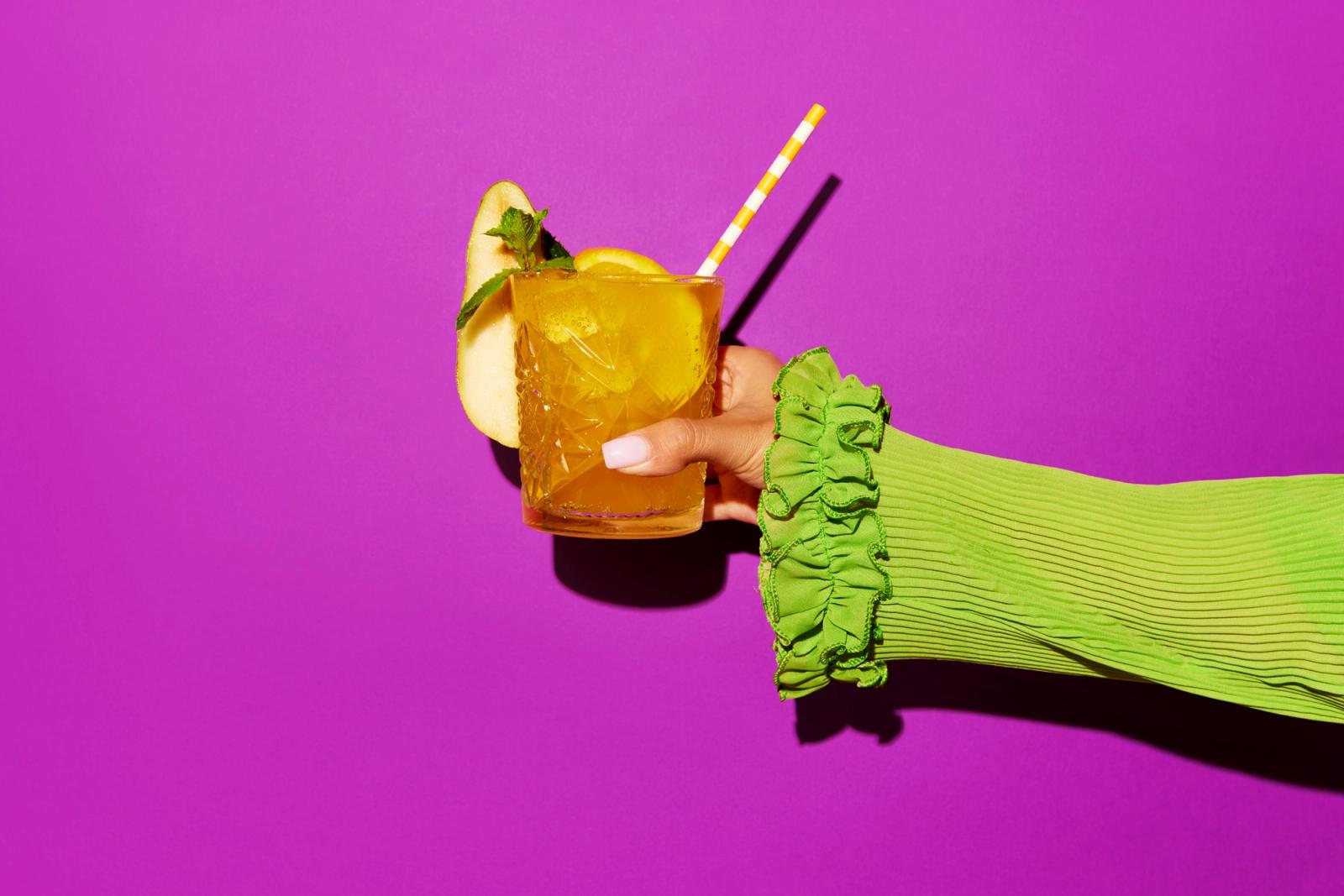The Topline
- Data shows tha t Gen Z drink less often , and in far less quantities when they do, compared to other generations.
- The alcohol industry is feeling the impact, as sales lessen and stocks take a dive .
Switch sides,
back and forth
Rebels against a dangerous industry
Well, the D.A.R.E . program finally worked. And no, it wasn’t by throwing a pizza party for all the fourth-graders who promised to never join a gang (yes, this happened).
Health Canada’s 2024 announcement that “safe” alcohol consumption should be two drinks a week – or, ideally, no drinks at all – was sobering for many Canadians (especially this guy ), but Gen Z’s been ahead of the curve for years.
In the last two decades, the number of adults under age 35 who say they drink has dropped 10 percent . Young adults aren’t drinking nearly as much as older generations, putting themselves less at risk for alcohol-related diseases like cancer .
It's good news for young people, and not just in terms of physical health. It’s common knowledge that the cost of living is climbing higher, but this has forced Gen Z to be more savvy with their finances . Thanks to financial literacy taught on social media platforms like TikTok, they’re less likely to blow their paycheque on bottle service or bottomless mimosas.
Plus, this generation is more focused on health and wellness and more likely to seek professional help when in need. Instead of booze, Gen Z turns to 12-step skincare regimens, matcha lattes, pilates and therapy. That could be called an obsession, but it’s certainly not as harmful as an addiction – especially considering that excessive drinking is a leading cause of preventable death in the states.
In the wine world specifically, Gen Z’s fight back against the bottle tackles elitism and inaccessibility. Headlines cry that this generation is “killing the wine industry,” but acknowledge that the pretentiousness surrounding wine is part of the reason why. In their quest to perfect the drink, winemakers may have accidentally alienated an entire generation that thinks perfection is performative .
This leaves room for new, more inclusive industry. Non-alcoholic drink brands are on the rise, ensuring that Gen Z'ers still have something to sip on while discussing the ethics of nut milks at a Euphoria-themed drag show. There’s even entire “liquor” stores devoted to non-alcoholic drinks .
Business always finds a way, and if these new ventures don’t lead to addiction, cancer or being insufferable at parties , that’s a win—and with the state of the world today, Gen Z could really use one.
Low on ABV...and cash...and social skills
Gen Z is saying no to drinks… that is, after the typical thousand-yard stare . In 2023, only 62 per cent of young people say they “ever” drink, down from 72% in 2013. The U.S. surgeon general and other buzzkills have very intelligently noted that no amount of alcohol is safe to drink , and links to cancer have been proven again and again.
But Gen Z’s choice to abstain might not be as healthy as it seems. And it might not be a choice, either.
As the cost of living (and the price of a pitcher of beer) skyrockets, some young people might just be too poor to drink. In a story published earlier this year, Wine Enthusiast quotes one Gen Z’er who can’t afford to buy fruit. Fermented fruit? Forget about it. More than one in three young people struggle to pay their monthly living expenses. And when it comes to state-altering substances, weed is cheaper.
Which rolls into another issue: Gen Z might be drinking less alcohol, but that doesn’t mean they’re sober. American Addition Centers says that this generation is using more drugs than previous generations, and recovery centres have noticed the shift in substance use . Music festivals like Coachella are seeing more functional mushrooms and less booze . There’s mixed data on how “bad” for you drugs are vs. alcohol, but it’s worth noting that Gen Z isn’t simply partying it up on fresh air and good vibes.
That is, when they’re partying at all. Many Gen Z'ers say they feel lonely and isolated, and other generations are taking notice of their lack of social skills (for example, the “ Gen Z stare ” referenced earlier in this story).
Social media and technology could be to blame – or, you know, the fact that a global pandemic destroyed a good chunk of their late teens and early twenties, a time known for making critical connections and discovering who you are. Alcohol is often enjoyed socially, especially for young people, so Gen Z’s meager consumption may have more to do with social isolation than health consciousness .
The winemakers, distilleries, breweries and more are feeling the impact. It’s an industry that already operates on thin margins, with wildfires and climate change threatening to ruin generations of business.
There are reports of an alcohol recession , while others say the alcohol industry is panicking , and a few worry – and are quick to point fingers – about Gen Z killing the wine industry . Some wineries are specifically marketing to youth , which feels like a dangerous game. Let’s not take advice from the vape makers .

